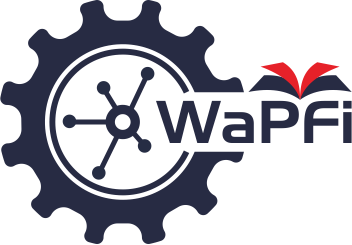Problem based learning in physics education: a systematic literature review
Abstract
The abstract arranged in a straight forward and concise manner and summarizes about: 1) a brief background (if any, just one or two sentences only); 2) The purpose and/or scope of research; 3) (brief) method used; 4) summary of results/ finding; 5) conclusion. Text length between 150-200 words (11pt) The purpose of this study was to examine the literature on problem-based learning models in studies related to scientific disciplines involving problem-based learning models for physics learning. The model is able to prove the conventional learning paradigm that accommodates learning in the 21st century. This research was conducted by analyzing 37 research journals related to problem-based learning models in physics learning published in the last ten years including peer reviewed articles and full text articles from Google undergraduate and also the ones that have been selected and indexed by Scopus, WOS or Sinta. This research approach is literature review. Overall, the results of this study indicate that learning by applying PBL in high school is the most widely used learning in the teaching and learning process. It is generally believed that PBL has a positive impact on education and can be used as an alternative model at all levels of Education.
Downloads
References
Čavić, M. R., Stanisavljević, J. S., Bogdanović, I. Z., Skuban, S. J., & Pavkov-Hrvojević, M. (n.d.). Project-Based Learning of Diffusion and Osmosis: Opinions of Students of Physics and Technology at University of Novi Sad. SAGE Open.
Taşoğlu, A. K., & Bakaç, M. (2014). The Effect of Problem Based Learning Approach on Conceptual Understanding in Teaching of Magnetism Topics. Eurasian J. Phys. & Chem. Educ, 110-122.
AKÇAY, B. (2009). Problem-Based Learning in Science Education. TÜRK FEN EĞİTİMİ DERGİSi, 26-36.
Akhdinirwanto, R., Agustini, R., & Jatmiko, B. (2020). Problem-Based Learning With Argumentation As A Hypothetical Model To Increase The Critical Thinking Skills For Junior High School Students. Jurnal Pendidikan IPA Indonesia, 340-350.
Allen, D. E. (2011). Problem-Based Learning. New Directions for Teaching and Learning, . 21-29.
Anwar, C., Saregar, A., Yuberti, Zellia, N., Widayanti, Diani, R., & Wekke, I. S. (2019). Effect Size Test of Learning Model ARIAS and PBL: Concept Mastery of Temperature and Heat on Senior High School Students. EURASIA Journal of Mathematics, Science and Technology Education.
Argaw, A. S., Haile, B. B., & Ayalew, B. T. (2017). The Effect of Problem Based Learning (PBL) Instruction on Students’ Motivation and Problem Solving Skills of Physics. EURASIA Journal of Mathematics Science and Technology Education, 857-871.
Bara, G., & Xhomara, N. (2020). The Effect of Student-Centered Teaching and Problem Based Learning on Academic Achievement in Science. TÜRK FEN EĞİTİMİ DERGİSİ, 180-199.
Bara, G., & Zhomara, N. (2020). The Effect of Student-Centered Teaching and Problem Based Learning on Academic Achievement in Science. TÜRK FEN EĞİTİMİ DERGİSİ, 180-199.
Barrows, H. S. (1980). Problem-Based Learning: An Approach to Medical Education. New York: Springer Publishing Company.
Celik, P., Onder, F., & Silay, I. (2011). The effects of problem-based learning on the students’ success in physics course. Procedia - Social and Behavioral Sciences, 656-660.
Chuan, T. Y. (2011). Problem-Based Learning: With or without Facilitator? Procedia—Social and Behavioral Sciences, 18, 394-399.
DaÄŸyar, M., & Demirel, M. (2015). Effects of Problem-Based Learning on Academic Achievement: A Meta-Analysis Study. Education and Science, 139-174.
Graaff, E. D. (2003). Characteristics of Problem-Based Learning. International Journal of Engineering Education. 19, 657-662.
Gunawan, G., Harjono, A., Herayanti, L., & Husein, S. (2019). Problem-based learning approach with supported interactive multimedia in physics course: Its effects on critical thinking disposition. Journal for the Education of Gifted Young Scientists, 7(4), 1075-1089.
Hmelo-Silver, C. E. (2004). Problem-Based Learning: What and How Do Students Learn? Educational Psychology Review. 16, 235-266.
Juleha, S., Nugraha, I., & Feranie, S. (2019). The Effect of Project in Problem-Based Learning on Students’ Scientific and Information Literacy in Learning Human Excretory System. Indonesian Society for Science Educator.
Jumadi, J., Perdana, R., & Rosana, D. (2021). The Impact of Problem-Based Learning with Argument Mapping and Online Laboratory on Scientific Argumentation Skill. International Journal of Evaluation and Research in Education, 10(1), 16-23.
Kazemi, F. &. (2012). Comparison of Problem-Based Learning Approach and Traditional Teaching on Attitude, Misconceptions and Mathematics Performance of University Students. . Procedia—Social and Behavioral Sciences, 46, 3851-3856.
Khan, K. S. (2003). Five Steps to Conducting a Systematic Review. Journal of the Royal Society of Medicine, 96, 118-121.
Khoiri, W., Rochmad, & Cahyono, A. N. (2013). Problem Based Learning Berbantuan Multimedia Dalam Pembelajaran Matematika Untuk Meningkatkan Kemampuan Berpikir Kreatif. Journal Of Mathematics Education 2 (1).
Kirschner, P. A. (2006). Why Minimal Guidance During Instruction Does Not Work: An Analysis of the Failure of Constructivist, Discovery, . Educational Psychologist, 41, 75-86.
Kitchenham, B. (2007). Guidelines for performing Systematic Literature Reviews in Software Engineering. Durham: Department of Computer Science University of Durham.
LaForce, M., Noble, E., & Blackwell, C. (2017). Problem-Based Learning (PBL) and Student Interest in STEM Careers: The Roles of Motivation and Ability Beliefs. Educattion Sciences.
Liana, Y. R., & Nurusuhud, P. I. (2020). Problem-Based Learning Approach with Supported Interactive Multimedia in Physics Learning: Its Effects on Critical Thinking Abilty. JIPF (JURNAL ILMU PENDIDIKAN FISIKA), 88-97.
Mahadi, I., & Ariska, D. (2022). The Effect of E-Learning Based on the Problem-Based Learning Model on Students' Creative Thinking Skills during the COVID-19 Pandemic. International Journal of Instruction, 15(2), 329-348.
Manurung, S. R., & Pangabean, D. D. (2020). Improving Students’ Thinking Ability In Physics Using Interactive Multimedia Based Problem Solving. Cakrawala Pendidikan.
Masek, A., & Yamin , S. (2011). The Effect of Problem Based Learning on Critical Thinking Ability: A Theoretical and Empirical Review. International Review of Social Sciences and Humanities, 215-221.
Missildine, K. F. (2013). . Flipping the Classroom to Improve Student Performance and Satisfaction. Journal of Nursing Education, 52, 597-599.
Nair, S. S., Smritika, S., & Thomas, K. A. (2020). Revitalizing Education through Problem based Learning Practices. International Journal of Education s.
Oktavi, R. A., Usmeldi, & Yohandri. (2018). Development of Physics Learning Material Based on Problem Based Learning by Integrating Local Wisdom West Sumatra toImprove Critical Thinking Ability of Students. International Journal of Progressive Sciences and Technologies (IJPSAT), 2509-0119.
Putri, W. E., Sunarno, W., & MArzuki, A. (2021). Analysis of The Students’ Argumentative Skills of Senior High School in Covid-19 Pandemic using Problem Based Learning in Static Fluid. Journal of Research in Science Education, 335-343.
Ramadhani, R., Umam, R., Abdurahman, & Syazali, M. (2019). The Effect of Flipped-Problem Based Learning Model Integrated with LMS-Google Classroom for Senior High. Journal for the Education of Gifted Young School Students, 137-158.
Sahyar, Sani, R. A., & Malau, T. (2017). The Effect of Problem Based Learning (PBL) Model and Self Regulated Learning (SRL) toward Physics ProblemSolving Ability (PSA) of Students at Senior High School. American Journal of Educational Research, 279-283.
Saldo, I. J., & Walag, A. M. (2020). Utilizing Problem-Based and Project-Based Learning in Developing Students’ Communication and Collaboration Skills in Physics. American Journal of Educational Research, 232-237.
Saputra, M. D., Joyoatmojo, S., Wardani, D. K., & Sangka, K. B. (2018). Developing Critical-Thinking Skills through the Collaboration of Jigsaw Model with Problem-Based Learning Model. International Journal of Instruction, 1077-1094.
Savery, J. R. (2011). Problem Based Learning: An Instructional Model and Its Constructivist Framework. Bloomington: The Center for Research on Learning and Technology.
Schultz, D. D. (2014). Effects of the Flipped Classroom Model on Student Performance for Advanced Placement High School Chemistry Students. Journal of Chemical Education, 91, 334-1339.
Serevina, V., Sunaryo, Raihanati, Astra, I. M., & SAri, I. J. (2018). Development of E-Module Based on Problem Based Learning (PBL) on Heat and Development of E-Module Based on Problem Based Learning (PBL) on Heat and. Development of E-Module Based on Problem Based Learning (PBL) on Heat and.
Shishigu, A., Hailu, A., & Anibo, Z. (2017). Problem-Based Learning and Conceptual Understanding of College Female Students in Physics. EURASIA Journal of Mathematics, Science and Technology Education, 145-154.
Simanjuntak, M. P., Hutahaean, J., Marpaung, N., & Ramadhani, D. (2021). Effectiveness of Problem-Based Learning Combined with Computer Simulation on Students' Problem-Solving and Creative Thinking Skills. International Journal of Instruction, 14(3), 519-534.
Tania, R., & Jumadi. (2021). The Application of Physics Learning Media Based on Android with Learning Problem Based Learning(PBL) to Improve Critical Thinking Skills. Advances in Social Science, Education and Humanities Research.
Tanti, Kurniawan, D. A., Sukarni, W., Erika, & Hoyi, R. (2021). Description of Student Responses Toward the Implementation of Problem-Based Learning Model in Physics Learning. JIPF (JURNAL ILMU PENDIDIKAN FISIKA), 30-38.
Taringan, R. (2017). Analysis of Critical Thinking with Problem Based. Advances in Social Science, Education and Humanities Research Learning in Physics Class.
Tinon Kawuri, M. R., Ishafit, & Fayanto, S. (2019). Efforts To Improve The Learning Activity And Learning Outcomes Of Physics Students With Using A Problem-Based Learning Model. IJIS Edu : Indonesian J. Integr. Sci. Education, 105-114.
Winarno, N., Rusdiana, D., Samsudin, A., Susilawati, E., Ahmad, N. J., & Afifah, R. M. (2020). Synthesizing Results from Empirical Research on Engineering Design Process in Science Education: A Systematic Literature Review. EURASIA Journal of Mathematics, Science and Technology Education, 16(12).
Yanto, F., Festiyed, & Enjoni. (2021). Problem Based Learning Model For Increasing Problem Solving Skills In Physics Learning. JIPF (JURNAL ILMU PENDIDIKAN FISIKA), 53-65.
Yuberti, Misbah, Latifah, S., Saregar, A., Nugraha, A., & Jermsittiparsert, K. (2019). Approaching Problem-Solving Skills of Momentum and Impulse Phenomena Using Context and Problem-Based Learning. European Journal of Educational Research, 1217-1227.






